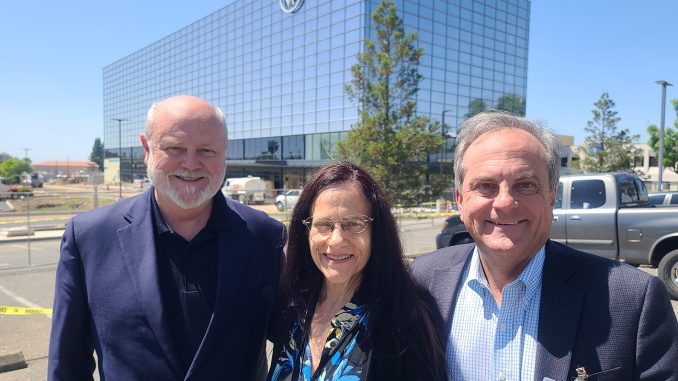
Dr. Gerald Maguire, Sr. came to Paradise in 1961. Until the end of his career in 2018, he was instrumental in creating mental health programs for underserved communities in Butte and Glenn counties, many of which are now modeled throughout the state. A long-time president of the State Conference of Mental Health Directors, he worked with lawmakers to create lasting change for patients in the mental health care realm.
“Jerry Sr.’s dream and vision was to develop a psychiatric residency program to attract mental health providers who come, train and reside here in the rural North State long term,” says colleague Dr. Lynne Pappas, director of psychiatric services at Oroville Hospital. “The day before he died, he sent me a video chat saying, ‘We have to get this going. This is our goal, this is our dream.’ I think for his son, Gerry, and I, psychiatric graduate medical education in Butte County has been the long sought solution for providing adequate mental health care to our communities.”
Today, Dr. Maguire’s dream has become a reality. Oroville Hospital recently received its accreditation as a sponsoring institution by the American Council of Graduate Medical Education. This means physicians can complete their residency programs at Oroville Hospital, where they will hopefully choose to stay, build their practice and bring much needed services and programs to Butte County and the surrounding communities.
“This hospital has been in this region since the early ’60s and has grown with the community,” says Robert Wentz, Oroville Hospital’s president and CEO. “We think that it’s a vital part of health care in the North Valley, and the new psychiatry residency program will greatly expand the quality and availability of mental health treatment.”
According to his son, Dr. Gerald A. Maguire, Jr., psychiatrist and the director of Oroville Hospital’s graduate medical education, the psychiatry residency program—the first of many to come for many different specialties—is planned to begin in July 2024.
“Two things predict where physicians primarily practice: where they’re from and where they finish their training,” explains Dr. Maguire, Jr. “We have way fewer psychiatrists and primary care physicians and specialty physicians to serve our community. Psychiatrists tend to be populated in major metropolitan areas, more affluent areas. … We have great physicians right here in Oroville who can train our next generation of docs. By creating a pipeline for the best and brightest students from our community to complete their medical training here at home, we will ensure our community will receive the best health care long into the future.”
According to both Dr. Maguire, Jr. and Dr. Pappas, the biggest obstacle to accessing health care in rural communities like Butte, Glenn, Shasta and Tehama counties is a lack of providers, something they know residency programs will alleviate.
“We’ve had a dearth of treatment [and] programs … because we have no providers to staff them. Residency training, in essence, builds a mental health workforce,” says Dr. Pappas. “Not only will patients benefit from this venture. The psychiatric residents will receive a rich clinical learning experience. They are privileged to assess and treat patients who have not had the benefit of psychiatric resources made available to them that are present in urban communities and university settings such as UC Davis and San Francisco.”
Dr. Maguire Jr. agrees, adding: “We are creating the best in academic health care right here in our own community.”
To learn more about Oroville Hospital, visit https://www.OrovilleHospital.com/

